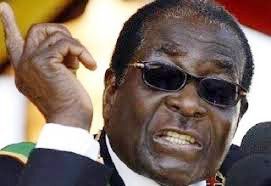The Chairperson of the Southern African Development Community (SADC), and President of Tanzania, John Magufuli, writing on his official @MagufuliJP Twitter handle said, “Africa has lost one of her brave leaders who resisted colonialism with actions.”
These sentiments were shared by his Kenyan counterpart, President Uhuru Kenyatta, who said the late Zimbabwean President Robert Mugabe was “an elder statesman, a freedom fighter and a Pan-Africanist who played a major role in shaping the interests of the African continent.”
Meanwhile, South African President Cyril Ramaphosa weighed in by calling him “a liberation fighter and champion of Africa’s cause against colonialism”, and Namibia’s president, Hage Geingob, said Namibians owed the late Zimbabwean leader “a deep sense of gratitude for his immense and selfless contributions to the liberation of our country”.
This sums up, almost, the mood on the continent as the news of the passing on of Mugabe spread thick and fast like a veld fire.
Indeed, he was a darling of Africa, admired across the length and breadth of the continent especially for his unflinching stance on political and economic freedom of the peoples of Africa.
SADC Executive Secretary Stergomena Tax was more praising in her condolence message.
“SADC will always remember President Mugabe as an icon and son of Africa who, through fighting tirelessly and selflessly, liberated Zimbabwe … and struggled for total liberation of southern Africa,” she said.
Likewise, African Union Commission Chairperson, Moussa Faki Mahamat wrote that the African Union has lost “an iconic liberation fighter and emblematic Pan-Africanist in the struggle for liberation and continental integration”.
On the international stage, however, Mugabe was known for his stubbornness in confronting superpowers as evidenced during the 67th session of the United Nations General Assembly when debating the issue of the reform of the UN Security Council.
During the general debate, he posed the uncomfortable question “For how long, Mr. President, will the international community continue to ignore the aspirations of a whole continent (Africa) of fifty-four countries?”
He wrapped it up by saying that Africa “shall not be bought-off with empty promises, nor shall we accept some cosmetic tinkering of the Security Council disguised as reform.”
Such was his wish to see Africa being equal among the community of nations that saw his stature in Africa grow in leaps and bounds.
At home, reports suggest that President Mugabe was feared and revered with equal measure, and his ‘stubbornness’ to fight for what he believed in made him hugely unpopular, especially among his political opponents.
While his successor, President Emmerson Mnangagwa, heaped praise on the former leader as “an icon of liberation, a Pan-Africanist who dedicated his life to the emancipation and empowerment of his people”, his demise was met with mixed emotions in a country he helped to liberate from colonialism.
A large section of society, including some of his former comrades, viewed the late President Mugabe in bad light, preferring to blame him for the economic challenges that bedevilled the country since the turn of the millennium after he oversaw a land reform programme designed to address historical land rights and tenure imbalances.
During his tenure at the helm of Zimbabwe, President Mugabe’s government was slapped with economic sanctions primarily by the European Union and the United States of America, and pleas by regional and continental bodies for the removal of the sanctions have fallen on deaf ears.
The economy of the country fell on its knees, affecting all sectors such as health and industry, resulting in Zimbabwean skilled labour migrating en masse to other countries looking for greener pastures, making any dream of economic recovery nearly impossible.
Headlines in mainstream and social media screamed all sorts of praises and profanities on a leader who fought for his own, whose let-down was possibly his overstay in power, and his circle of some ‘self-serving’ advisers and friends.
That said, the late Mugabe will be known for standing by his beliefs regardless of the consequences.
“He was never afraid to fight for what he believed in, even when it was not popular,” said President Kenyatta.
JN/APA


